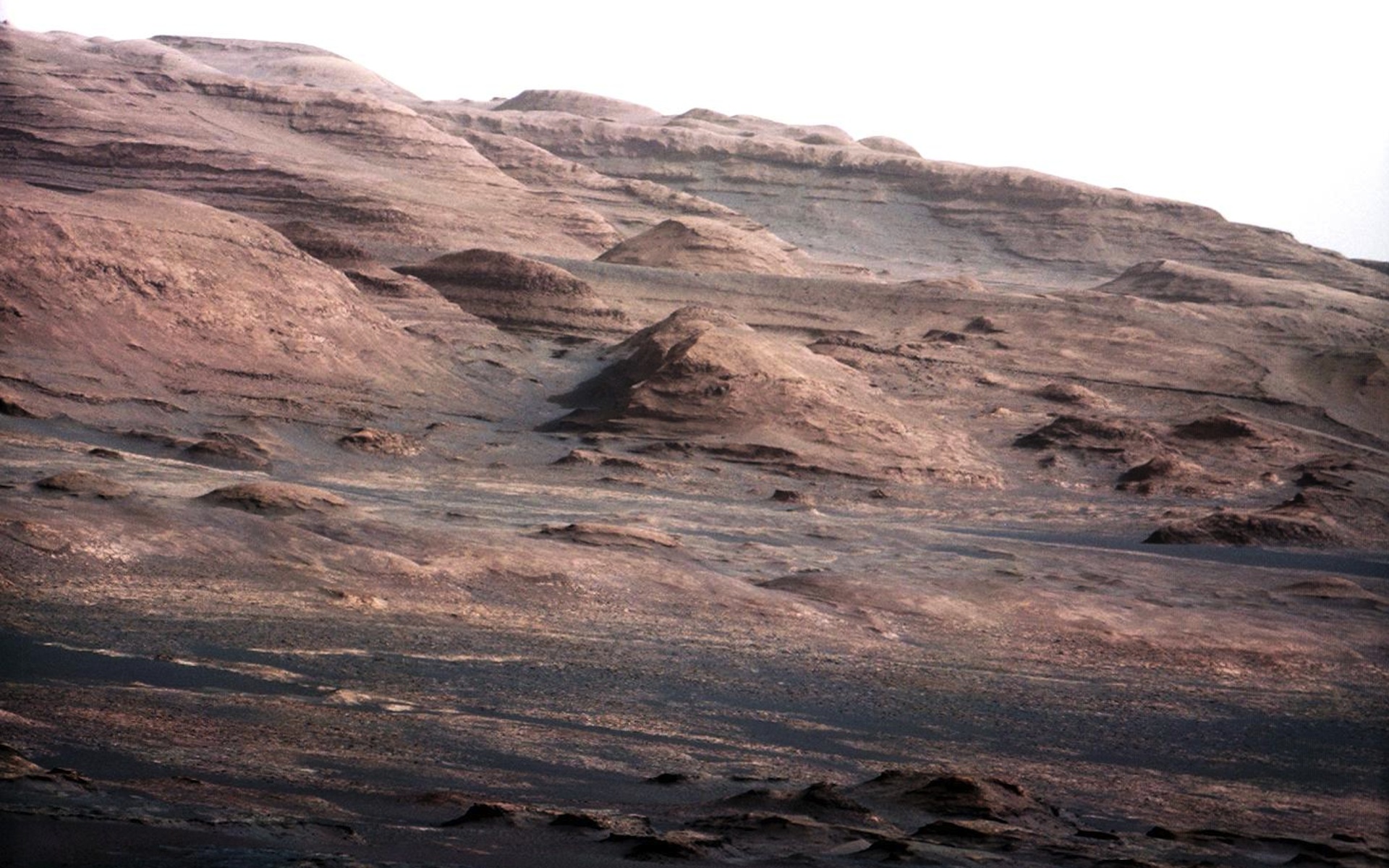Amazing Photos: Titan, Saturn's Largest Moon
The 30-Year Forecast: Predicting Titan's Clouds
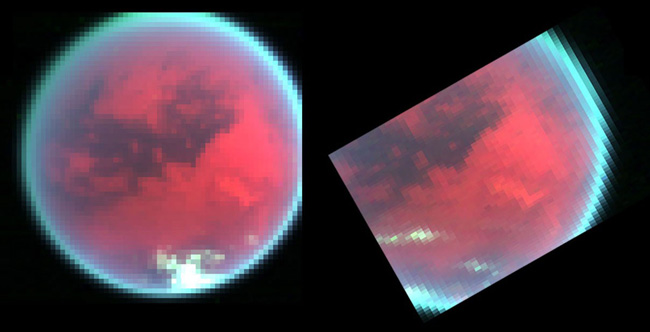
These false-colour images of Titan were obtained by the Cassini-Huygens Visual Infrared Mapping Spectrometer during the 26 October/13 December Titan fly-bys In contrast to the reddish surface, bright clouds residing above most of the atmospheric absorption appear whitish in these representations.
Saharan Sand Dunes Found on Saturn's Moon Titan
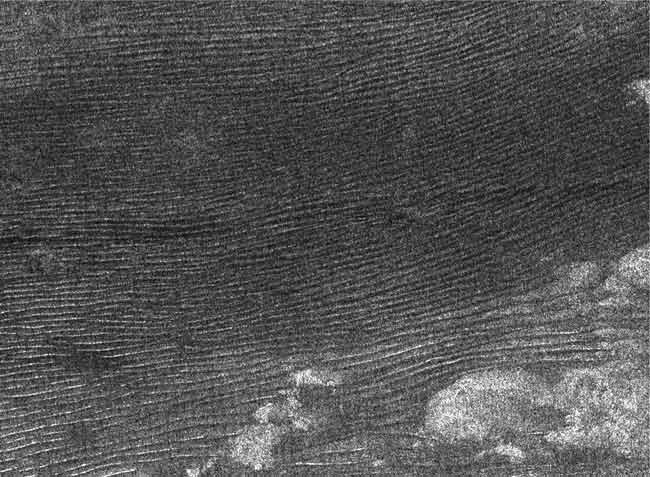
Image of the Belet sand sea at about 12 degrees South and 100 degrees West on Titan.
Cassini Spacecraft Observes Titan's Northern Seas
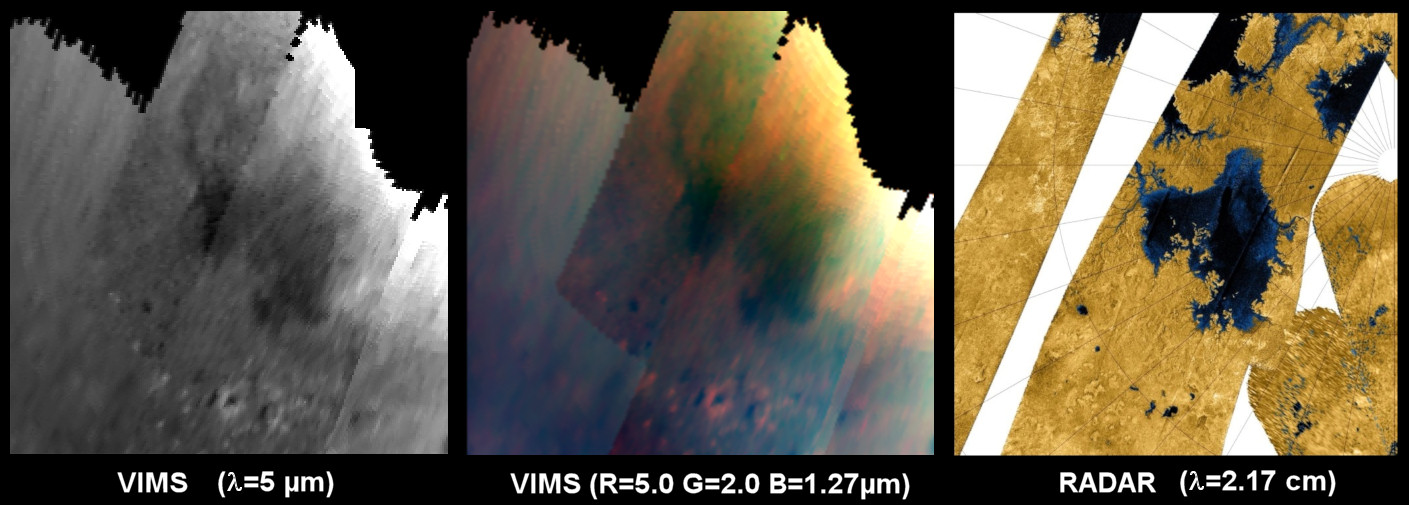
Observations of the northern seas of Titan by Cassini's Visual and Infrared Mapping Spectrometer, or VIMS, (left and center) and by RADAR (right).
Titan in Motion: New Video of Landing on Saturn's Moon
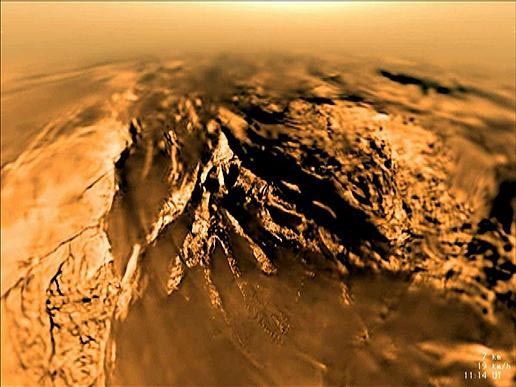
This image is part of a four-minute and 40-second video based on data from Europe's Huygen's probe, which landed on Saturn's moon Titan on January 14, 2005.
Patch of Saturn's Moon Resembles Earth
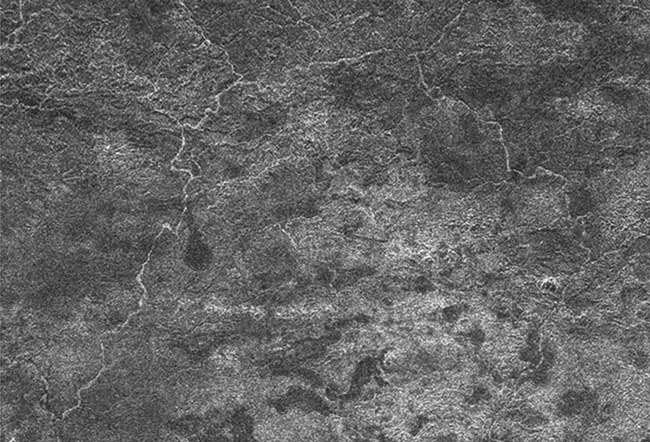
A network of river channels is located atop Xanadu, the continent-sized region on Saturn's moon Titan. This radar image was captured by the Cassini Radar Mapper on April 30, 2006.
Scientists to Scan Titan's Atmosphere From Earth
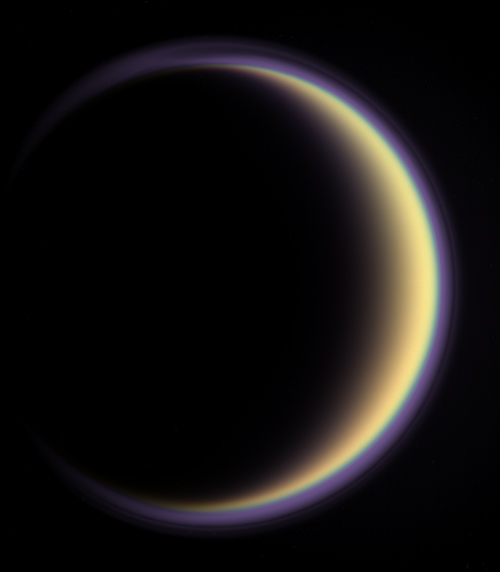
The haze of Titan's atmosphere stands out in this image taken by the Cassini spacecraft currently orbiting Saturn.
Lakes Found on Saturn's Moon Titan
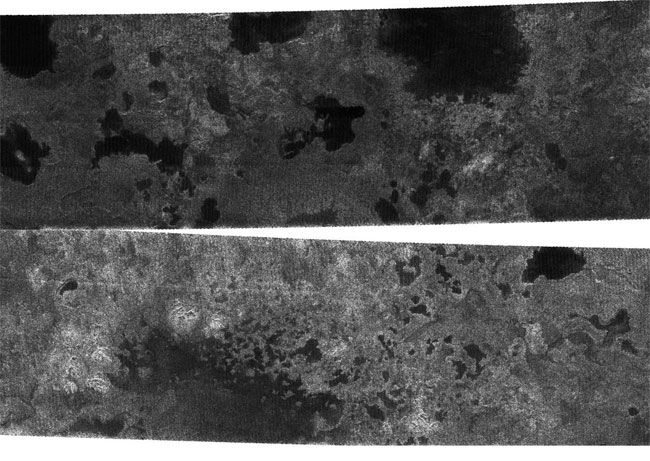
The Cassini spacecraft, using its radar system, has discovered very strong evidence for hydrocarbon lakes on Titan. Dark patches, which resemble terrestrial lakes, seem to be sprinkled all over the high latitudes surrounding Titan's north pole. Image
Get the Space.com Newsletter
Breaking space news, the latest updates on rocket launches, skywatching events and more!
Titan: A Tale of Two Worlds
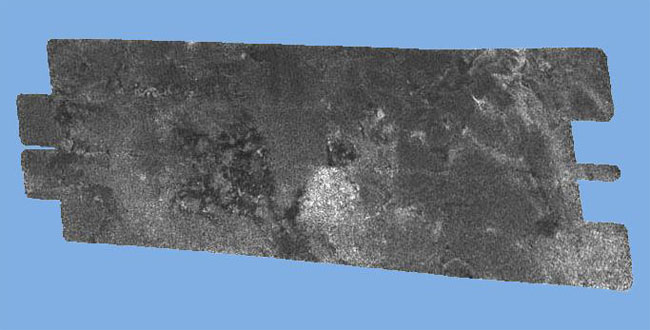
This radar image of the surface of Saturn's moon Titan was acquired on October 26, 2004, when the Cassini spacecraft flew approximately 994 miles (1,600 kms) above the surface. Brighter areas may correspond to rougher terrains and darker areas are thought to be smoother. This image highlights some of the darker terrain, which the Cassini team dubbed "Si-Si the Cat." This nickname was chosen after a team member's daughter, Si-Si, pointed out that the dark terrain has a cat-like appearance. Image
Saturn's Moon Titan a World of Rivers and Lakes
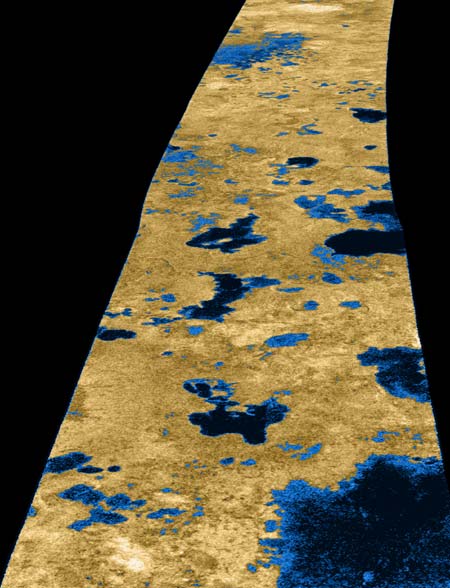
A false-color image of Titan's surface snapped by NASA's Cassini spacecraft on July 22, 2006. The lakes appear darker than the surrounding terrain because of the unique way they scatter radar, which is similar to how water lakes on Earth do it.
Four Moons to Cross Saturn's Face Tuesday
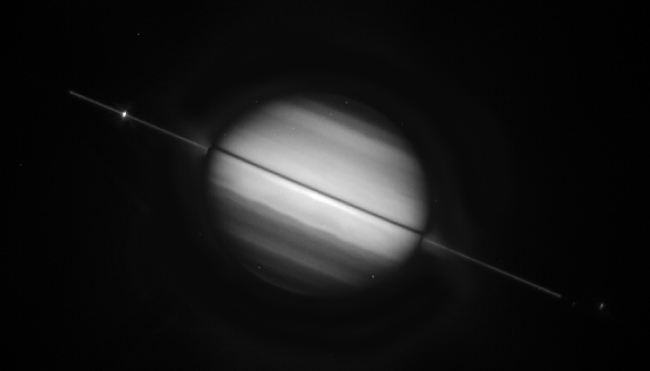
Saturn's rings are wide but very thin. Astronomers using the Hubble Space Telescope captured this image of the rings edge-on in 1995.
Join our Space Forums to keep talking space on the latest missions, night sky and more! And if you have a news tip, correction or comment, let us know at: community@space.com.

Space.com is the premier source of space exploration, innovation and astronomy news, chronicling (and celebrating) humanity's ongoing expansion across the final frontier. Originally founded in 1999, Space.com is, and always has been, the passion of writers and editors who are space fans and also trained journalists. Our current news team consists of Editor-in-Chief Tariq Malik; Editor Hanneke Weitering, Senior Space Writer Mike Wall; Senior Writer Meghan Bartels; Senior Writer Chelsea Gohd, Senior Writer Tereza Pultarova and Staff Writer Alexander Cox, focusing on e-commerce. Senior Producer Steve Spaleta oversees our space videos, with Diana Whitcroft as our Social Media Editor.
